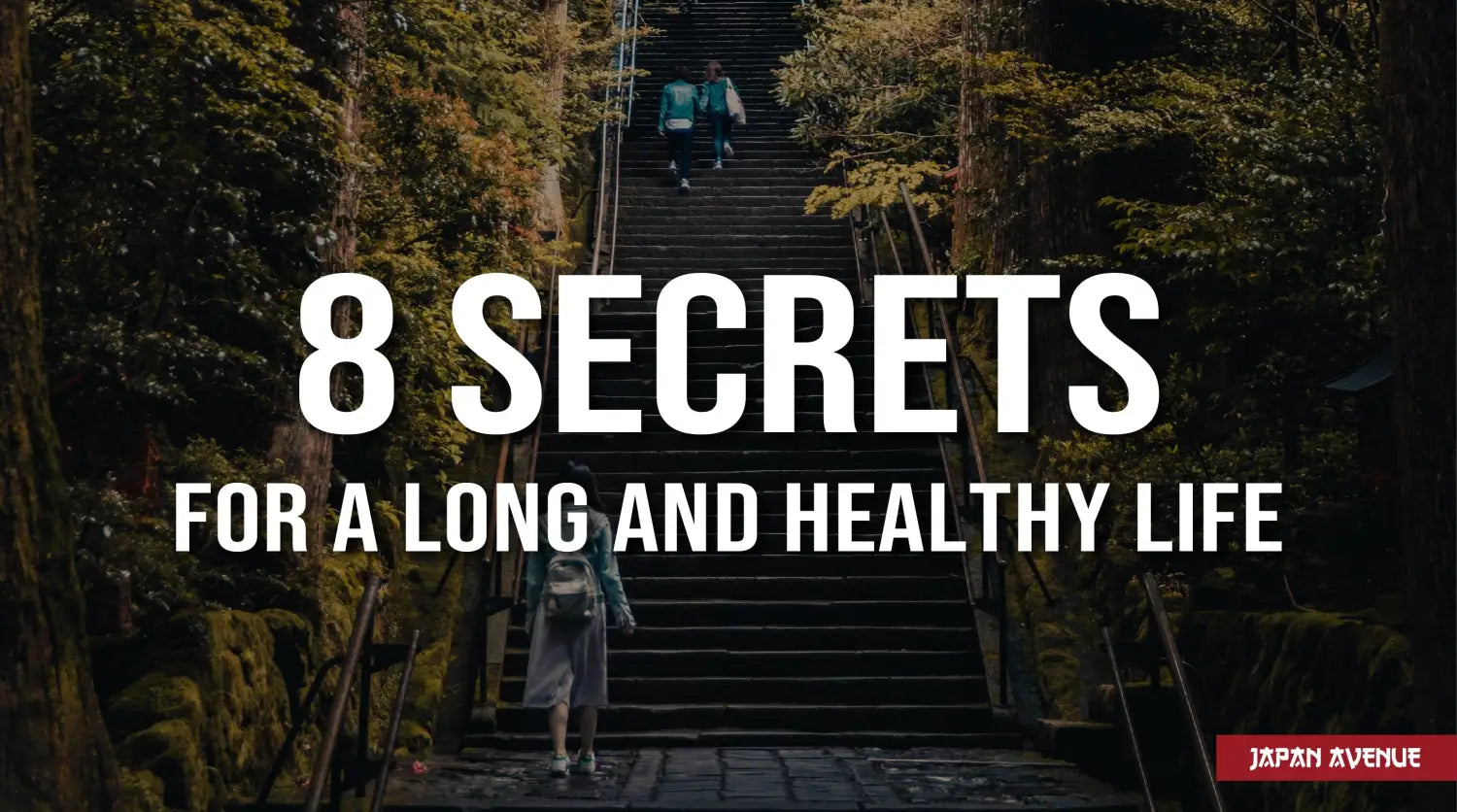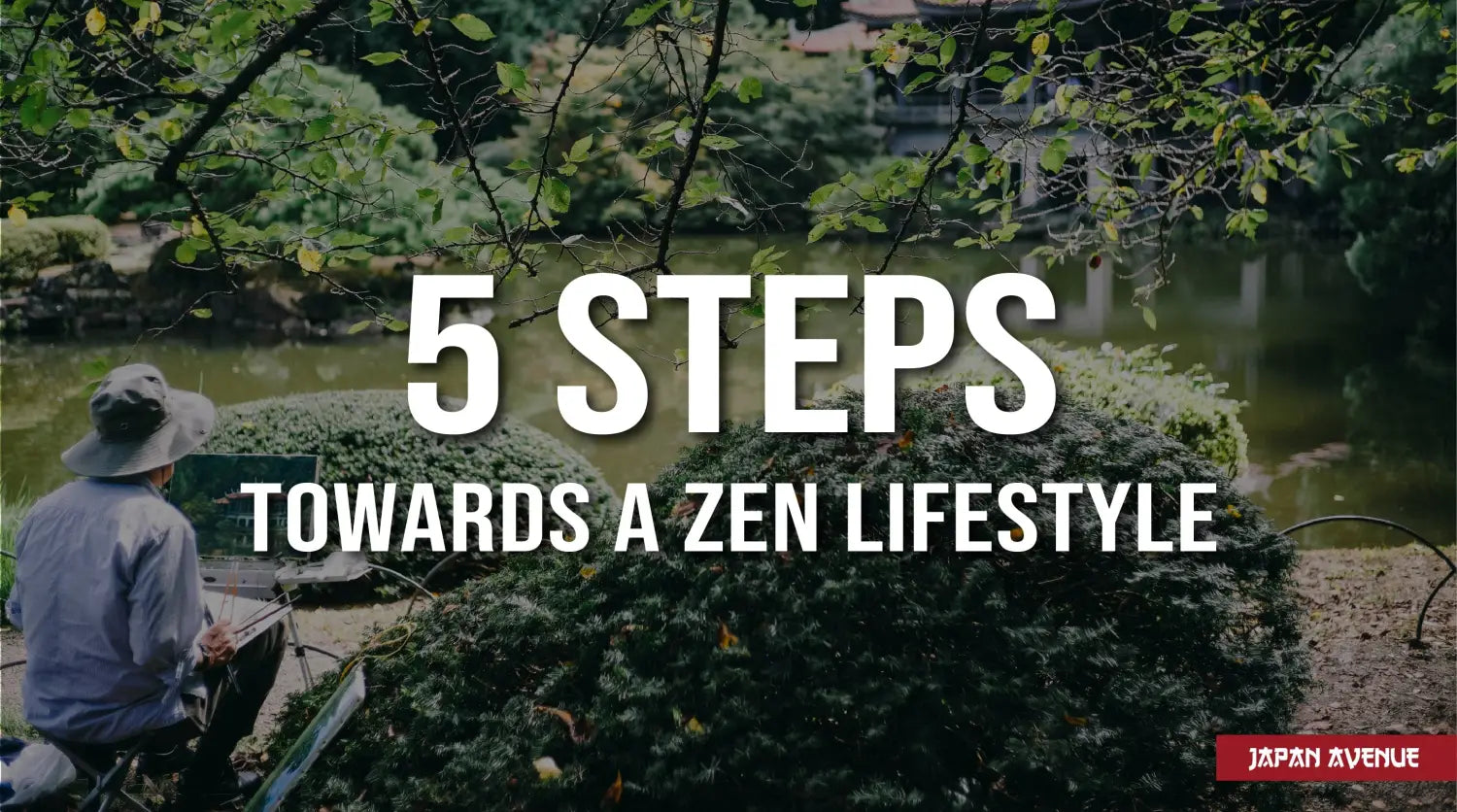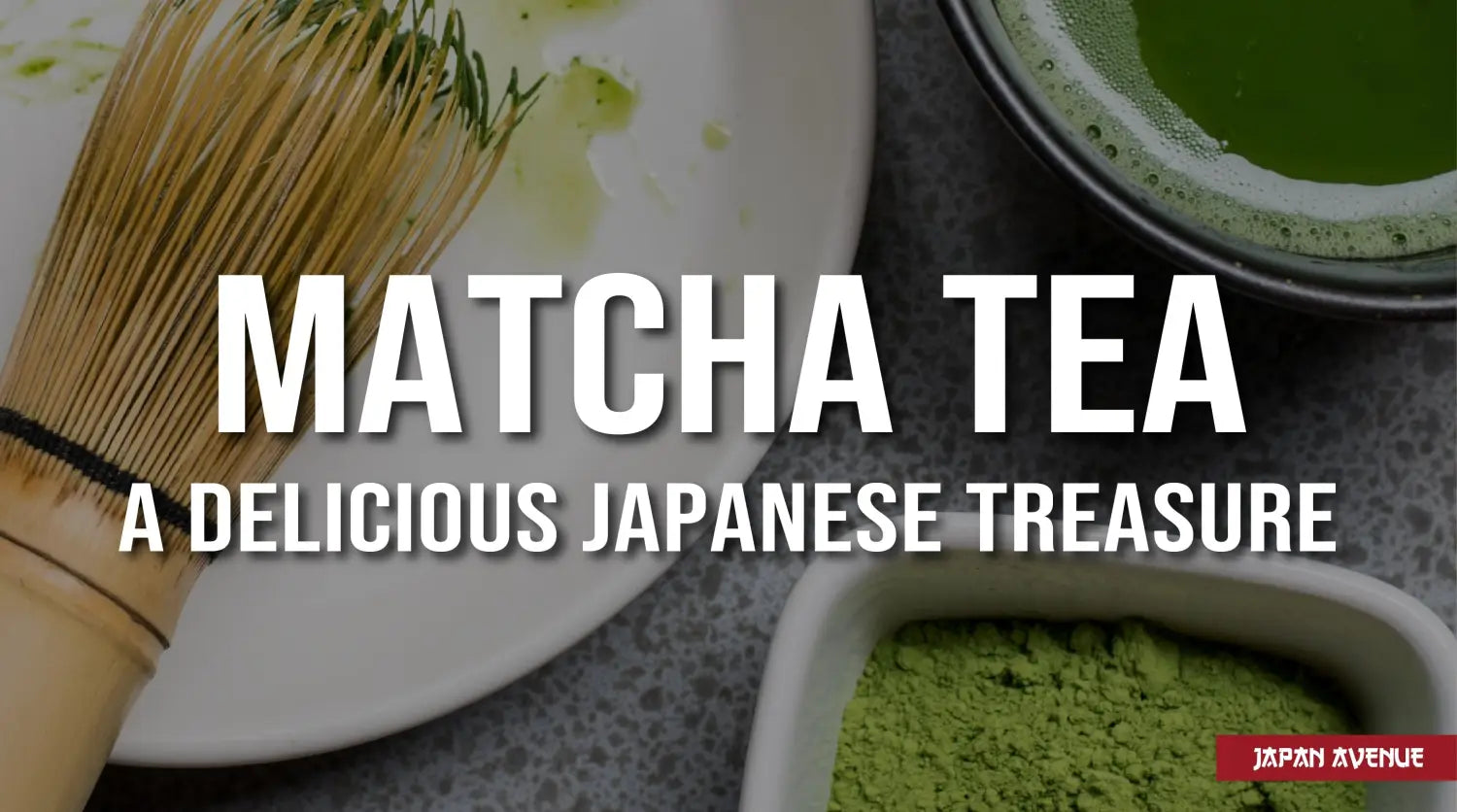The inhabitants of Japan, and more particularly those of Okinawa Island, are known for their exceptional life expectancy: 81 years for men and more than 87 years for women! With the aging of the population, the archipelago counts more and more elderly people and the number of centenarians beats all records.
But what are the Japanese longevity secrets? Genetics, diet, lifestyle, spirituality? How to explain this demographic phenomenon?
In this article, we will reveal 8 secrets straight from the Land of the Rising Sun on how to live a long and healthy life.
🍱 Secret #1 : Japanese food

As we all know, food is one of the pillars to a healthy lifestyle. Thus, eating healthy and balanced contributes to staying in shape for a long time. On the Okinawa island, many locals grow their own vegetables directly in their garden. Eggplants, red beans, cabbage... the Japanese eat seasonal, fresh and all-natural products. Follow their example ;-)
Cooked "gohan" rice (御飯) is the base of traditional Japanese meals, starting with the breakfast. Many dishes are made using this grain, including sushi, donburi (rice with fillings) and onigiri (a kind of sandwich), all of which are commonly eaten by children as snacks.
A traditional meal often consists of a bowl of rice plus 3 sides and miso soup. Among the main ingredients of Japanese cuisine are vegetables, fish (salmon, mackerel), eggs, pasta, soy, seaweed, ginger and fermented foods. The Japanese eat very little meat, industrial food and dairy products. Their diet is therefore rich in minerals, vitamins, fiber, omega 3 and low in bad fats and sugars.
But eating well is not enough... The way of cooking also matters since it is known that long cooking at high temperatures alters the food. In the Japanese diet, many dishes are eaten raw, which has the advantage of preserving vitamins and good nutrients. Else, the cooking is preferably "Al dente" light and fast.
Finally, the Japanese consume a lot of green tea and especially the famous matcha. Thus, they benefit from its antioxidant virtues that preserve from aging, while maintaining a good hydration.
🥢 Secret #2 : Hara hachi bu or the 80% rule

In addition to eating healthily, Japanese people always prioritize the quality of food over quantity by consuming only what is necessary to cover their nutritional needs. To do so, they apply the Hara hachi bu rule which can be translated as "belly 80 percent full". This principle involves stopping eating when you are 80% full. Thus, overeating and the weight gain that goes with it are avoided.
Another difference lies in the way of eating. Westerners often devour their meals on the run, without appreciating the flavors, while the Japanese eat consciously. In the Land of the Rising Sun, people pay particular attention to the food and especially take the time to taste them. Note that the dish is appreciated as much with the eyes as with the taste buds, thanks to a nice presentation mixing textures, colors and tastes.
🛀 Secret #3 : Japanese lifestyle

"The world belongs to those who gets up early!". This saying is very much true in the archipelago. Many Japanese people start their day early. In the morning, physical exercise is necessary to wake up and tone up gently. Also, to avoid stress linked to work and daily life, Japanese people often practice particularly relaxing activities such as meditation, calligraphy, ikebana (floral art) or kodo (the art of Japanese incense). Finally, unwinding in a thermal bath or onsen is a deeply rooted tradition in the Land of the Rising Sun. A healthy diet, activity and relaxation, these are the essential ingredients to a healthy Japanese lifestyle.
🚶♀ Secret #4 : Exercise in Japan

In Japan, physical exercise is enjoyed at all ages. From childhood, children join sports and art clubs. These activities are continued throughout their school years. Likewise, Japanese people have the habit of staying active after retirement, be it through work or through other activities. For example, it is not unusual to see elderly people riding bicycles, practicing jogging or power walking. Moreover, rajio taiso is a morning ritual not to be missed in the archipelago, no matter one's age or physical condition. Remember this gentle workout practiced by 27 million people in Japan? Even companies adopted it in order to keep their employees in good health (and more efficient). It is well known that physical activity is a very effective way to stay in shape.
👩⚕ Secret #5 : access to healthcare

Japan's healthcare system consists of many clinics and specialized doctors and is recognized as one of the best in the world. There are two types of public health insurances. The first one is the national health insurance which covers up to 70% of the health care costs. The second is the employee social insurance, which is available to all employees. This insurance is paid half by the employer and covers 80% of the employee's health care and the costs of his dependents. The quality and ease of access to care certainly helps in staying in good physical condition in the Land of the Rising Sun.
👩👦👦 Secret #6 : living in a community

"Living together" is a value that is taught from a very early age in Japan. Group spirit and collectivity prevail in the Japanese culture where the common interest always comes before personal interest. Similarly, family is very important. Japanese people are therefore often well surrounded by their relatives and live in a warm environment. On Okinawa island, the village of Ogimi is home to a community of nonagenarians and centenarians who discuss, help each other and laugh together. According to the locals, living together is the key to living happily and longer.
💙 Secret #7 : Ikigai or the reason for being

What's the point of living a long life if you lead a bland and meaningless existence? Ikigai is a philosophy of life that originated in Okinawa and allows to find one's reason for being. Decidedly, Okinawans have much to teach us ☺
On the island, many elderly people continue to work in order to keep the social link. Moreover, in the village of Ogimi known for its textile craft production, women of a certain age practice "basho-fu" weaving, a common ikigai.
Ikigai is the perfect balance between what one loves to do, what one is good at, what one is paid to do, and what the community needs. This results in fulfillment in one's work, one's passions, and in feeling useful towards others. Finding your ikigai is about following your path to happiness.
🧎♂ Secret #8 : Spirituality of the Japanese

Spirituality occupies an important place in the life of Japanese people who practice many rituals from Shinto and Buddhist religions. And if spirituality was the real secret behind this record of longevity? Some studies show that people who attend places of worship are more likely to live longer than others. Similarly, meditation is a common practice in Japan and its health benefits have been proven. Focusing on sensations and breathing deeply helps to release tension while bringing inner peace. The result? Stress hormones (cortisol) are reduced and cells are better protected from aging. Lastly, according to scientific studies, meditation reduces the risk of cardiovascular disease. Without a doubt, the zenitude of the Japanese is one of the keys to living a better and longer life.
As you can see, the secrets of Japanese longevity are mainly related to their way of life. So, if you want to lead a longer (and better) life, feel free to apply some Japanese rituals in your daily life ☺ !



